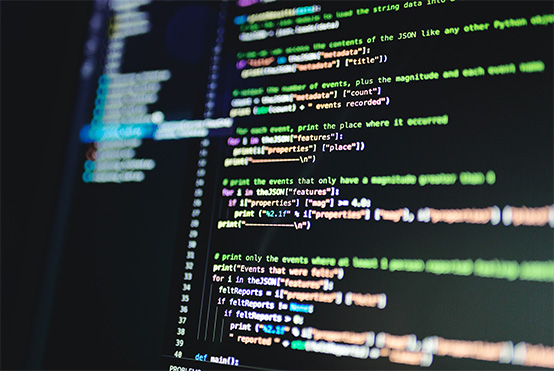The role of artificial intelligence in computer science is constantly evolving, and it continues to have a transformative impact on the technology sector. For computer science professionals, gaining AI expertise is crucial to stay competitive within a shifting digital landscape.
In this article, we’ll look at the recent explosion of AI and explore its implications for the future of computer science. We’ll also explore degrees that can equip you with specialist skills in AI so you can become a leader within your industry.
What is the impact of AI on computer science?
AI has significantly transformed computer science by introducing new standards in problem-solving, automation, and data analysis. It’s expanded the boundaries of what computers can achieve, enabling the development of intelligent systems that can learn, adapt, and make decisions. This has led to innovations in areas like machine learning, natural language processing, and robotics.
Artificial intelligence in computer science has also driven advancements in fields such as bioinformatics, autonomous systems, and big data analytics. As a result, AI has not only enhanced the efficiency and capabilities of computer systems, but also redefined the skills and tools needed in the tech industry.
Despite fears that AI will replace programmers, the reality is that we now need programmers who are able to use AI in innovative ways. Although AI is currently being used to drive down the expense of creating software, the demand for AI-savvy programmers is stronger than ever.
In terms of the future of programming, it’s likely to be an ongoing collaboration between humans and AI. Recent studies have shown that teams using AI in their work are more efficient and effective than teams that work exclusively with people. So although AI will continue to displace some jobs, it will ultimately generate more jobs as this human/AI collaboration intensifies.
AI for developers: A new skill set
Today’s developers are increasingly working with AI-driven tools for productivity and efficiency. This Forbes article about the future of programming delves into the impact of AI, explaining that AI-powered tools are helping developers write code faster, but that industry experts and creative thinkers are still needed to provide providing architectural vision and direction.
Here are some of the skills developers will need to stay competitive in an era of AI-generated coding:
- AI and machine learning fundamentals: Understanding how AI models work and how to integrate them into applications.
- Prompt engineering: Crafting effective prompts to optimise the output of AI code generators.
- Code review and debugging AI-generated code: Identifying and fixing errors in AI-produced code to ensure quality and reliability.
- Advanced problem solving: Applying critical thinking to address complex, high-level challenges that AI tools cannot fully solve.
- System design and architecture: Designing scalable, efficient systems, as AI focuses more on code-level tasks.
- Ethical AI and responsible tech: Ensuring AI usage aligns with ethical standards, addressing bias, privacy, and fairness.
- Collaboration with AI tools: Learning to effectively integrate AI into the development workflow for productivity gains.
- Continuous learning and adaptability: Keeping up with rapidly evolving AI technologies and frameworks.
- Domain knowledge: Gaining specialised knowledge in fields like finance, healthcare, or cybersecurity to apply AI effectively.
- Soft skills: Enhancing teamwork, communication, and leadership, which remain crucial in collaborative and client-facing roles.
Ultimately, although AI is capable of writing code quickly and effectively, we still need experts who can assess the quality of this code. The technology sector also needs experienced leaders who can provide direction and vision, as well as imagination and creativity.

The future of AI and its role in computer science
At this stage, it’s difficult to predict exactly what the future of AI will be. It continues to have a significant impact on computer science innovation, and it’s already taken over many low-skill coding jobs such as generating boilerplate code. This is valuable because it saves developers time and allows them to focus on more complex and creative aspects of development.
However, despite AI’s increasing ability to code and have a role in the computer science industry, it’s not perfect. It often doesn’t produce the most efficient code, makes mistakes, and creates results that still need debugging by an expert. As a result, learning coding skills remains valuable in today’s technological landscape – but in order to stay ahead of the changes coming, they’ll need to be bolstered with other skills, too.
In terms of how AI will impact future technology careers, experts are saying that high-level problem-solving skills will become just as important as coding skills – if not more so. Since AI lacks the ability to judge qualitative factors such as relationships and human motivation, it has significant shortcomings only people can solve.
Looking forward, though, there is speculation that AI could eventually cause ‘social ruptures’ between people who disagree on its sentience, especially since it’s been predicted by academics that ‘the dawn of consciousness in AI systems is likely by 2035’. So, although corporations are eager to embrace AI as a cost-cutting tool, they also need to be aware of the possible complications and ethical complexities.
At present, AI applications continue to redefine the scope and capabilities of computer technology. These include:
- Deep learning: This enables the development of highly accurate models for tasks like image recognition, speech synthesis, and predictive analytics – driving advancements in areas such as autonomous vehicles and personalised medicine.
- Robotics: AI can be integrated into robotics to create systems that can learn from their environment and perform complex tasks autonomously. This pushes the boundaries of automation and human-machine interaction.
- Natural language processing (NLP): NLP is transforming how humans interact with computers through more intuitive communication – powering applications like virtual assistants, chatbots, and real-time translation.
Together, these technologies not only enhance the efficiency and intelligence of software systems but also foster innovation in interdisciplinary fields, making computer science a cornerstone of modern technological development. If you want to make an impact in this industry, a Master in Computer Science (Artificial Intelligence) will help to expand your skillset, providing the skills needed to lead and succeed.
Prepare for the future with an AI specialisation at Monash Online
Monash Online has a commitment to research and innovation, giving our students the opportunity to make tangible contributions to the future of AI. As the only Group of Eight (Go8) university with a dedicated Faculty of IT, we hold the #1 ranking for Computer Science in Australia (Times Higher Ed).
We’re investing in AI and data science, fostering interdisciplinary collaboration to explore emerging technologies and their societal impacts, shaping the future of computer science. When you study computer science at Monash Online, you’ll learn essential technical skills from award-winning academics, specialising in AI, Cybersecurity, and Software Engineering.
We offer a range of courses in computer science including:
Please contact us for more information, or speak directly to our course advisors on 1300 272 509.
You can also read more about the Monash Online Master of Computer Science in our blog.


